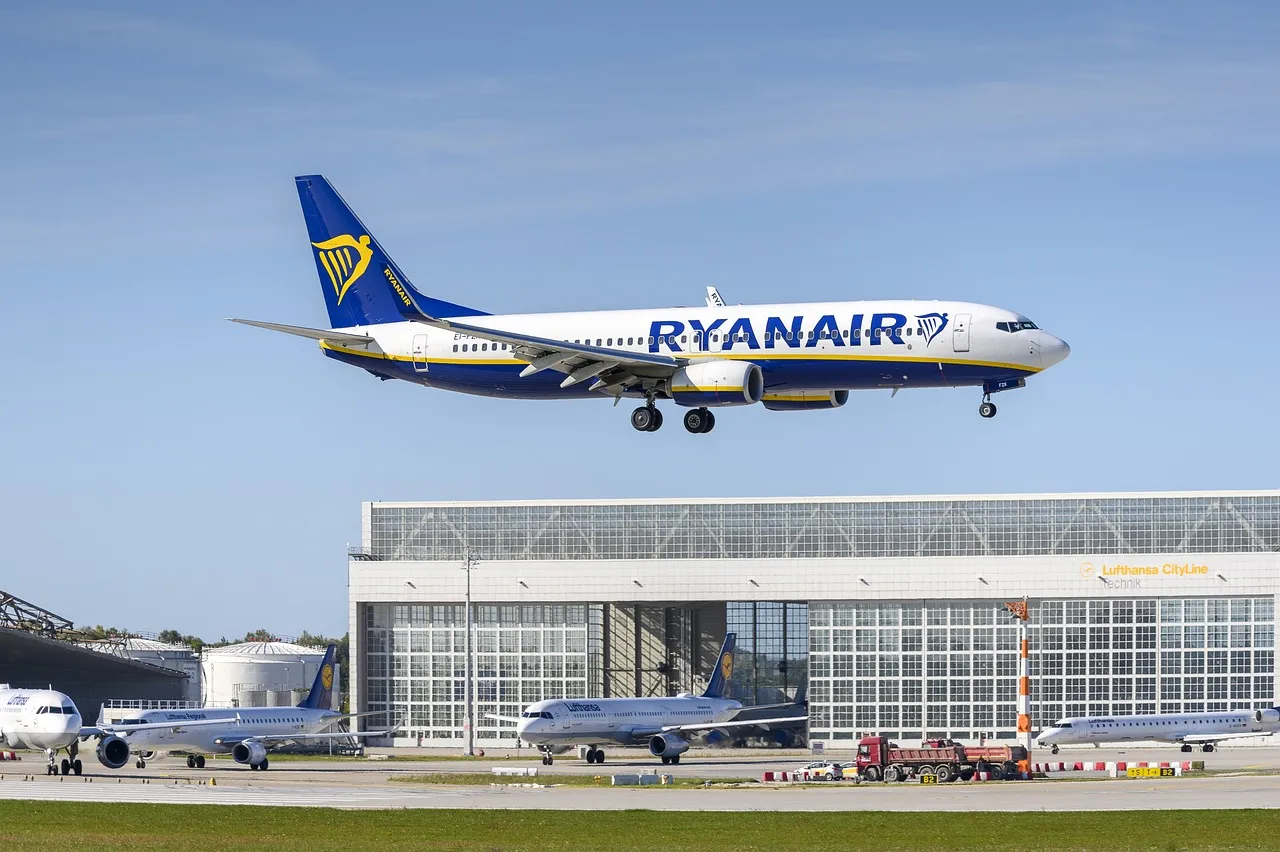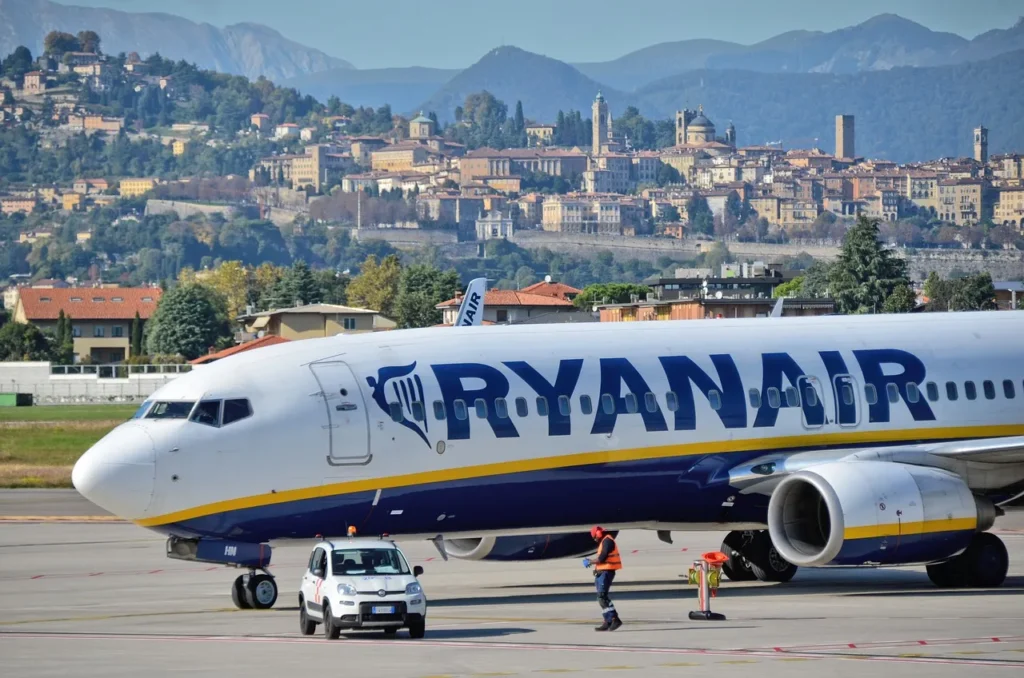
Ryanair Expands Fleet in Portugal with Two New Aircraft for 2025
Ryanair, Europe’s leading low-cost airline, has announced its highly anticipated 2025 summer schedule for Portugal, promising increased connectivity, tourism growth, and new employment opportunities. This extensive schedule comprises 169 routes, including four new connections: one from Porto to Rome and three from Madeira to Milan, Shannon, and Bournemouth. Additionally, to meet rising demand and further support regional traffic, Ryanair is investing $200 million in Portugal by introducing two new Boeing 737 “Gamechanger” aircraft in Madeira and Faro. This expansion will bring the airline’s Portugal-based fleet to 29 aircraft and generate 60 new jobs for pilots, cabin crew, and engineers across the country.
Ryanair’s Expansion in Portugal: Strengthening Regional Airports
Ryanair’s expansion plan places significant emphasis on regional airports, particularly in Madeira, which will experience substantial growth. Madeira will receive one of the two new B737 “Gamechanger” aircraft, along with three new routes, contributing to an impressive 54% increase in traffic for the summer of 2025. This surge in activity is expected to boost local tourism and provide travelers with greater accessibility to and from the island.
Similarly, Faro, one of Portugal’s most popular tourist destinations, will benefit from Ryanair’s investment. The additional aircraft based in Faro will enhance the airline’s operational capacity, allowing for increased frequency on key routes and providing passengers with more travel options. The Algarve region, which heavily relies on tourism, stands to gain significantly from this expansion as it will attract more visitors, thereby stimulating the local economy.
No Growth for Lisbon: Challenges with ANA’s Fees and Capacity Constraints
While regional airports such as Madeira and Faro will experience growth, Lisbon will see no expansion in 2025. According to Ryanair, this stagnation is a direct result of ANA Aeroportos de Portugal’s excessive fees and its failure to expand capacity at Humberto Delgado Airport (Portela Airport). The airline has long criticized ANA for imposing high airport charges, which hinder competition and limit opportunities for growth.
Ryanair argues that these excessive fees make it difficult for airlines to offer affordable fares, ultimately impacting passenger numbers and slowing down tourism growth. Additionally, the failure to increase capacity at Lisbon’s main airport exacerbates the issue, as congestion and operational limitations prevent airlines from adding new routes or increasing flight frequencies. This situation not only affects Ryanair but also limits overall air travel options for both residents and tourists traveling to and from the capital.
Lisbon’s lack of growth contrasts sharply with the significant expansion in other Portuguese regions. Ryanair’s decision to focus on Madeira and Faro highlights its commitment to enhancing connectivity across the country, even as the capital faces stagnation due to infrastructural and regulatory challenges.
The Portuguese Government’s Rejection of ANA’s Alcochete Proposal
Despite the challenges in Lisbon, Ryanair has expressed support for the Portuguese government’s recent decision to reject ANA’s controversial proposal to make Portela Airport users finance the construction of the new Alcochete Airport. ANA’s suggestion, which would have required passengers to bear the costs of the new airport’s development, faced strong opposition from Ryanair and other stakeholders who viewed it as an unfair financial burden on travelers.
The Alcochete Airport, initially expected to alleviate congestion at Portela, has faced multiple delays and is now projected to open only by 2040. This prolonged timeline means that, in the meantime, Lisbon’s existing airport must accommodate increasing passenger numbers without significant capacity improvements.

While Ryanair welcomes the government’s stance on ANA’s proposal, the airline insists that further action is necessary. It urges authorities to take immediate steps to expand Portela Airport’s capacity to prevent further congestion and enhance the efficiency of air travel to and from Lisbon. The airline believes that expanding airport facilities would not only boost traffic and tourism but also generate employment opportunities and contribute to the country’s overall economic growth.
Economic Impact: Job Creation and Tourism Boost
Ryanair’s continued investment in Portugal is expected to have a profound impact on the country’s economy. The introduction of two additional aircraft in Madeira and Faro will create 60 new high-paying jobs for pilots, cabin crew, and engineers. These employment opportunities will support the local workforce and contribute to the aviation industry’s development in Portugal.
Furthermore, the expansion of routes and increased flight frequencies will stimulate tourism, a crucial sector for Portugal’s economy. With more travel options available, visitors from key European markets such as the UK, Ireland, France, Belgium, and Italy will find it easier to visit Portugal, boosting revenue for local businesses, hotels, and restaurants.
The decision to enhance connectivity to Madeira, in particular, is expected to be a game-changer for the island’s tourism sector. With a 54% increase in traffic anticipated, Madeira will likely see a surge in visitor numbers, benefiting from improved accessibility and more affordable travel options. This aligns with the region’s goal of becoming a top travel destination, attracting both leisure and business travelers.
The Future of Ryanair in Portugal
Looking ahead, Ryanair remains committed to growing its operations in Portugal, provided that regulatory and infrastructural challenges are addressed. The airline has consistently advocated for lower airport charges and improved airport capacity to ensure that passengers can continue to enjoy affordable air travel.
Ryanair’s expansion in regional airports demonstrates its adaptability in navigating challenges while seeking opportunities for growth. However, the lack of progress in Lisbon remains a concern. The airline continues to call for urgent government intervention to address capacity constraints and excessive fees at Portela Airport, emphasizing that such measures would benefit not only Ryanair but also Portugal’s broader aviation and tourism industries.
As Ryanair prepares for the summer of 2025, its strategic focus on regional airports signals a shift in Portugal’s aviation landscape. By prioritizing destinations like Madeira and Faro, the airline is reinforcing its role as a key player in the country’s travel and tourism sector. Nevertheless, overcoming the challenges in Lisbon will be essential to ensuring balanced and sustainable growth across all of Portugal’s airports.

